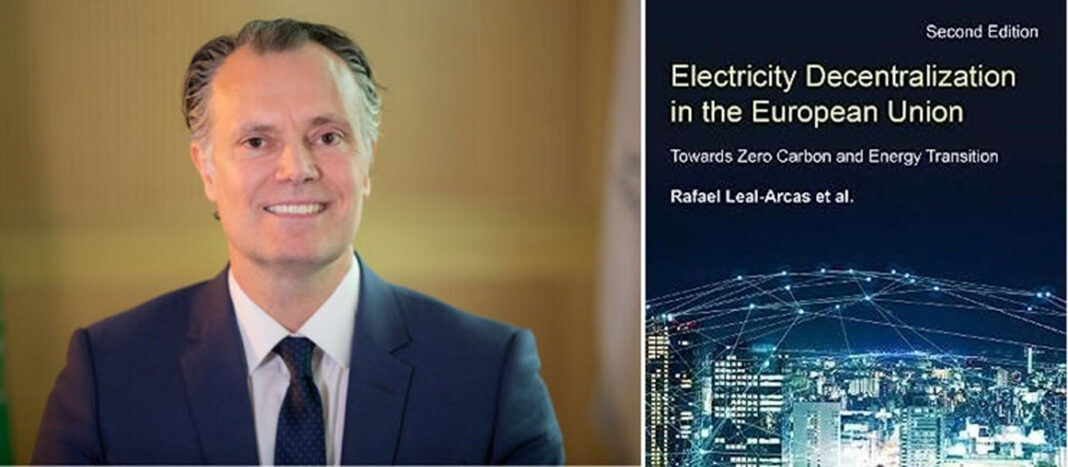Alfaisal University’s College of Law & International Relations Faculty Professor Rafael Leal Arcas has published recently published the 2nd edition of his book “Electricity decentralization in the European Union”.
Dr Rafael stated that this book examines progress on electricity decentralization in European Union (EU) jurisdictions prior to Brexit. It focuses on specific outcomes of decentralization, including deployment of smart grids and smart meters, promoting demand response, promotion of electric vehicles, and greater interconnection with all countries of the EU. It examines each EU country’s progress on these fronts as well as any existing barriers. The book also examines regulation that has helped towards the goal of decentralization in each EU country, which could perhaps be adopted in other countries seeking to transition to more liberalized energy markets. For the purposes of this book, we focus mainly on electricity markets. Europe has been working towards liberalized energy markets since the 1990s, with a series of Directives to this effect. Many EU member states have made significant progress in this regard, with increased competition amongst energy suppliers, better services, and lower energy prices. Decentralization seems to be the next logical step, as it will further help achieve a more democratic and participative energy market.
Book summary
Electricity Decentralization in the European Union: Towards Zero Carbon and Energy Transition, Second Edition, examines progress in decentralization across the European Union (EU), with each chapter focusing on developments and innovations in a specific country. Sections provide an overview of the current role and state of smart grids, the conceptualization of energy transition, and specific cases across all EU states. Across the chapters, regulatory frameworks are assessed to identify to what extent it is conducive to decentralization, with specific outcomes of decentralization covered in detail, including deployment of smart grids and meters, demand response, electric vehicles, and storage.
The book highlights how specific EU member states are progressing towards deployment of these tools and technologies, along with the specific needs and regulatory barriers in each and recommendations for how regulation can be more encouraging. In addition, electricity interconnections in the EU are considered as a vital step towards decentralization in order to boost energy security and energy efficiency. Finally, the book includes a detailed examination of data protection concerns that arise from the advent of new technologies that collect personal information, such as smart grids, assessing current regulation on data protection and identifying areas for improvement, as well as innovative finance options for sustainable energy.














